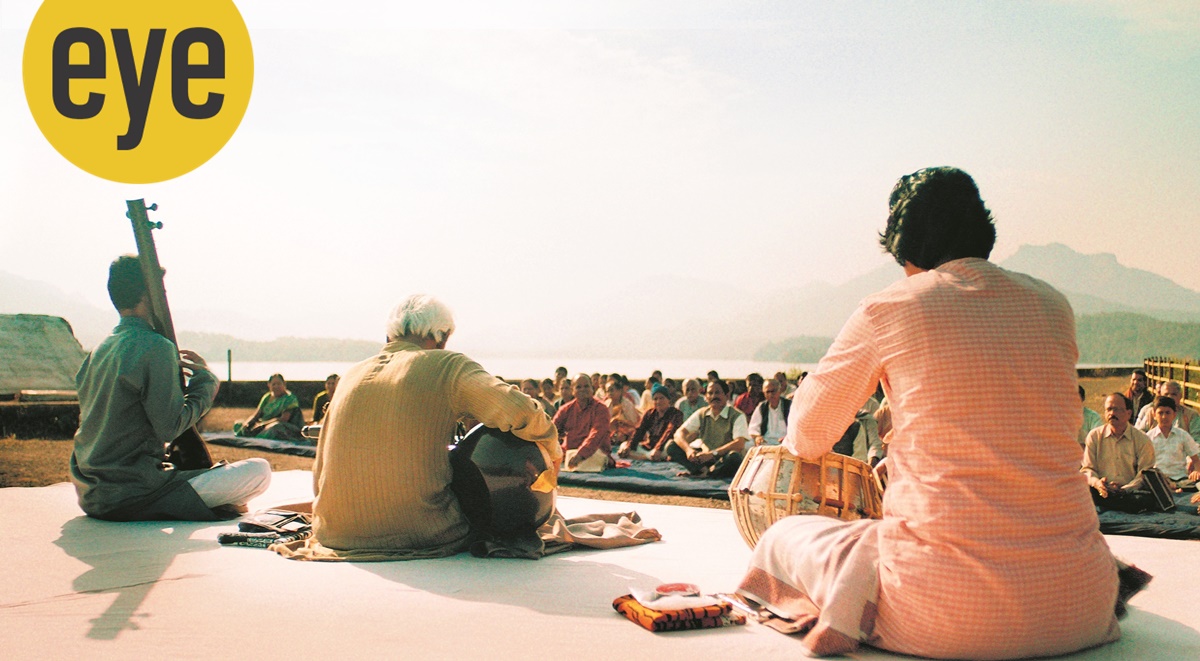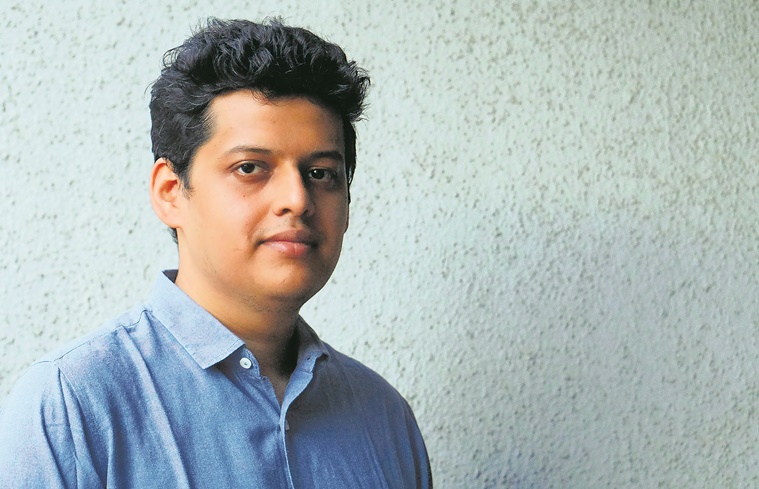
[ad_1]
 A still from The Disciple; from Court (2014)(Photo: Zoo Entertainment)
A still from The Disciple; from Court (2014)(Photo: Zoo Entertainment)
Music had never played a significant role in Chaitanya Tamhane’s life. Through all his years in Mumbai’s theatre circuit, where he made and acted in plays, and, later, while working with Balaji Telefilms, the 33-year-old never listened to anything more compelling than popular Bollywood and Marathi music. Yet, in his filmmaking debut, Court (2014), the story of a folk musician and activist accused of abetting a sewage worker’s suicide, Tamhane examined class, caste and corruption through the prism of poetry set to rousing tunes. The film premiered at the Venice International Film Festival and won the best feature film prize in the Horizons category. It travelled to several other festivals and won several awards, including a National Award for Best Feature Film.
Almost six years later, Tamhane is ready with his second film. This time, he uses a more complex and subjective form of music to tell his story. The result is The Disciple, a feature film that attempts to capture the zeitgeist of the world of Hindustani classical music. It tells the story of a classical vocalist who follows the tradition and teachings of his guru but finds himself challenged by contemporary life. The Disciple is also Venice-bound and is the first Indian film in nearly 20 years to land a competition slot at the Venice International Film Festival (September 2-12) since Mira Nair’s Golden Lion winner Monsoon Wedding (2001). In the same month is the film’s North American premiere at the Toronto International Film Festival (September 10-20).
 The Disciple is the first Indian film in nearly 20 years to land a competition slot at the Venice International Film Festival. (Photo: Chaitanya Tamhane)
The Disciple is the first Indian film in nearly 20 years to land a competition slot at the Venice International Film Festival. (Photo: Chaitanya Tamhane)
Tamhane’s interest in classical music grew out of his curiosity about its practitioners. “I was enamoured of classical musicians — eccentric, enigmatic musicians such as Annapurna Devi, among others,” says Tamhane. He started attending concerts, watching documentaries, reading books on the topic, and travelling across the country to interview musicians. “I’d call them up and pick their brain without any agenda. Finally, I came to terms with the fact that since this is the only thing on my mind, this is what I will be writing about. The script evolved from these interactions,” he says.
The Mumbai-based filmmaker’s research was a way for him to sensitise himself to the complex artform. “My process is very superficial to begin with. It was the same with Court. But, the deeper I go into things, different facets, complexities and contradictions surface. Then you engage with it in a more serious manner,” says Tamhane, who says he fell in love with this world in the process.
The casting was a challenge. Tamhane needed people who could speak Marathi, practised classical music, especially khayal, and were also camera-friendly. “Aditya Modak, the lead, had to undergo rigorous physical training,” says Tamhane. The guru and the students also had to be from the same gharana. Mumbai-based tabla exponent Aneesh Pradhan, who has designed the music of the film, helped Tamhane sort some of these issues.
The fulfilment of Tamhane’s vision for The Disciple is also the result of fruitful collaborations, one of which is with Alfonso Cuarón. The Academy Award-winning filmmaker, known for films such as Children of Men (2006) and Gravity (2013), had been impressed by Court and came on board as executive producer. Tamhane had met the Mexican filmmaker in 2018, during the ‘Rolex Mentor and Protege Arts Initiative’ which pairs gifted young artistes with masters of their field for creative collaboration, and, he got to watch Cuarón on the sets of the Oscar-winning Roma (2018). “His idea of having faith in one’s vision and not compromising on the process for the sake of the market is something I always thought of. Alfonso made me believe more in it,” says Tamhane. It was Cuarón who convinced Tamhane to edit his own film after the latter complained about not finding an editor.
Tamhane’s other important creative association has a long history. At 21, he wrote and directed Grey Elephants in Denmark, an interactive play about a magician. In the lead was Vivek Gomber, who had given up his life in Singapore to become an actor in India. The two became friends and, when Tamhane was ready to make Court, it was Gomber who financed it. He also played the defence lawyer in the film. After Court, a lot of people had told the filmmaker that it would be easy to find funding for his next venture. “None of it was true,” says Tamhane. Gomber, 36, once again joined the project as a producer. “My work and I exist because of Vivek. His faith in me is overwhelming,” says Tamhane.
📣 The Indian Express is now on Telegram. Click here to join our channel (@indianexpress) and stay updated with the latest headlines
For all the latest Eye News, download Indian Express App.
© The Indian Express (P) Ltd
[ad_2]
Source link